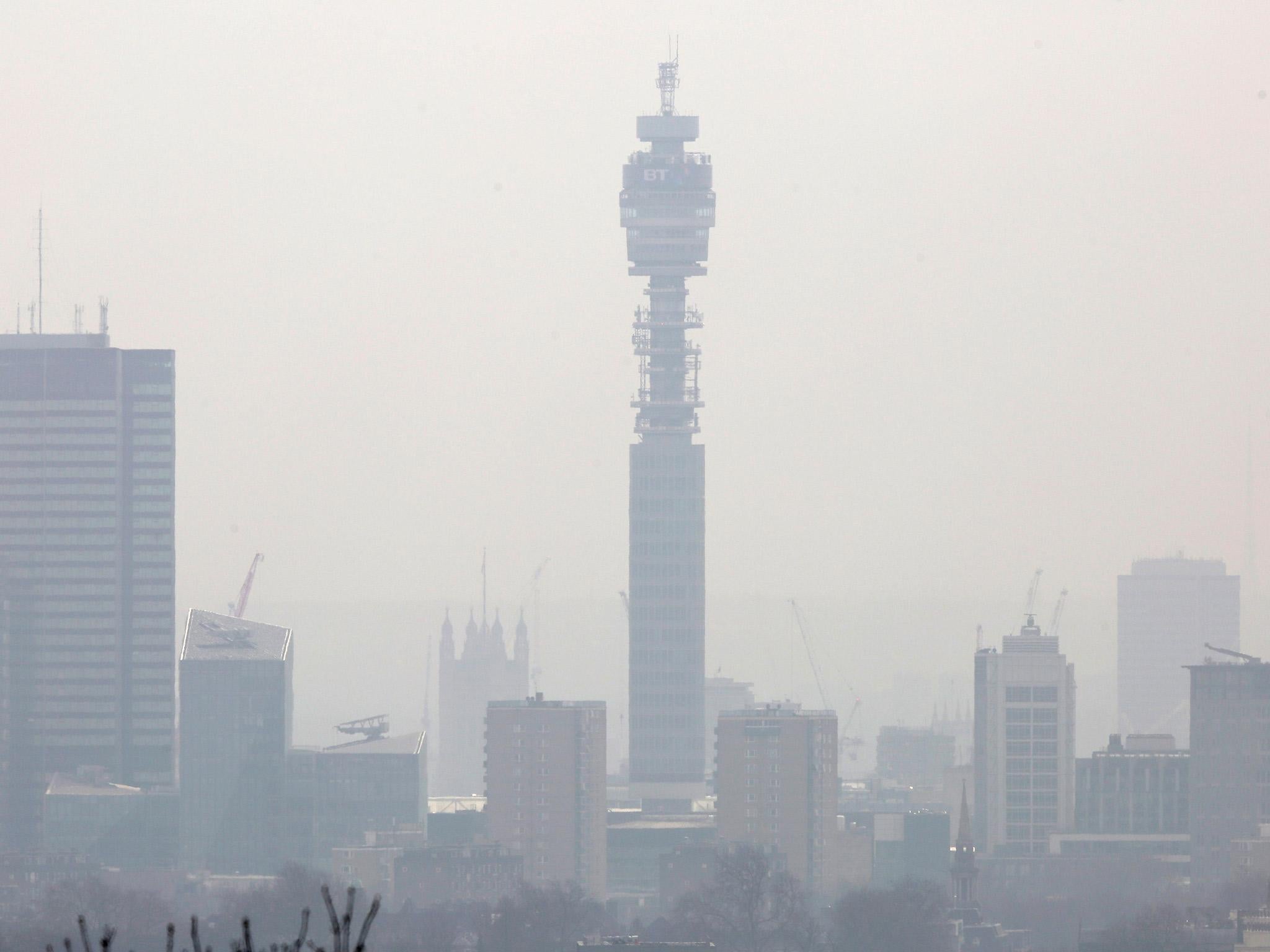George Osborne accused of illegally blocking moves to cut air pollution because they cost too much
‘ClientEarth’s evidence on how the Treasury has prioritised costs and political comfort over people’s lives is hard to overstate,’ environmental campaigner says

Measures designed to cut air pollution were illegally blocked last year by the then Chancellor George Osborne on the grounds of cost, the High Court has heard.
Environmental law group ClientEarth is taking legal action against the Government over its “failure to tackle the national air pollution crisis”.
According to the World Health Organization, air pollution is “wreaking havoc on human health” and the UK Government estimates it causes the premature death of 40,000 people a year. Campaigners have also described diesel fumes as the “biggest public health catastrophe since the Black Death”.
Under European Union law, the Government was supposed to have taken action to reduce air pollution, including nitrogen dioxide (NO2), to within a set limit by 2010.
ClientEarth launched a legal action in 2011, saying 37 out of 43 zones across the UK were in breach of the NO2 limit. They won a case in the Supreme Court last year, forcing the Government to come up with a new plan to tackle the problem, which ClientEarth believes is still not good enough to comply with the law.
And at the High Court hearing on Tuesday, they claimed the Department for Environment, Food and Rural Affairs had drawn up ambitious plans to cut air pollution.
But the Treasury decided these were too “high cost to HMG [Her Majesty's Government] at a time of significant affordability constraints”.
Nathalie Lieven, QC for ClientEarth, told the court the Treasury wanted the “minimum” measures required to stay within EU law and this led to the Government to announce plans to create just six “Clean Air Zones”.
“What is absolutely clear is that the cost of the measures and the requirement to keep the costs to a minimum was, in the end, the factor that led to six mandatory Clean Air Zones,” she said.
“All the evidence shows that, on the basis of the modelling carried out, six mandatory zones were not going to achieve compliance.”
Speaking after the case, James Thornton, ClientEarth’s chief executive, said: “We offered evidence in court today that the previous Chancellor, George Osborne, made decisions about air pollution based on money – to spend as little as possible.
“That’s not allowed under the law – health comes first, and we have 40,000 people a year dying early of air pollution in the UK.
“Not only that, it costs the UK economy £27.5 billion a year, according to the Government, so a smart Chancellor would rush to clean up the air.”
He added: “The Government is acting unlawfully by refusing to turn this situation around.
“It is failing morally and it is failing legally to uphold our right to breathe clean air.
“The Government must come up with far bolder measures, ready to face this issue head-on. Air quality in this country is nothing short of a public health crisis.”
Greenpeace air pollution campaigner Areeba Hamid said there was “no doubt that air pollution in the UK has appalling health consequences and billions of pounds lost every year”.
“In this context, ClientEarth’s evidence on how the Treasury has prioritised costs and political comfort over people’s lives is hard to overstate,” she said.
“While particulates and nitrogen dioxide from diesel cars have already killed thousands of people and car companies keep coming up with new tricks to beat toxin tests, the Government’s choice is to collude with this fraudulent behaviour and water down efforts to protect public health rather than side with its citizens.
“It’s hard to overstate the seriousness of this act of irresponsibility and even harder to overlook it.”
Friends of the Earth air pollution campaigner Aaron Kiely voiced concern about what the Government would do after Brexit, when EU laws will not apply.
“The Government shouldn't have to be taken all the way to court, again, just to make sure we can all breathe clean air,” he said.
“Post-Brexit it is vital that the UK enshrines in law EU legal limits for air pollution, and moves towards complying with World Health Organization recommended levels in order to save lives.”
Health campaigners joined the environmental groups in expressing dismay about the Government’s record on air pollution.
Dr Penny Woods, chief executive of the British Lung Foundation, said: “The Government has to be held to account for their action on air pollution.
“They should not only commit to more clean air zones, they must take steps to improve monitoring and reporting of air pollution around schools. Our children's lung health depends on it.”
A Treasury spokeswoman said it could not comment on the claims that it had blocked air pollution reduction schemes on financial grounds as the court case is ongoing.
However a Government spokesperson defended its general record, saying: “The Government is firmly committed to improving the UK’s air quality and cutting harmful emissions.
“That’s why we have committed more than £2bn since 2011 to increase the uptake of ultra-low emissions vehicles, support greener transport schemes and set out a national plan to tackle pollution in our towns and cities.”
Join our commenting forum
Join thought-provoking conversations, follow other Independent readers and see their replies
Comments
Bookmark popover
Removed from bookmarks